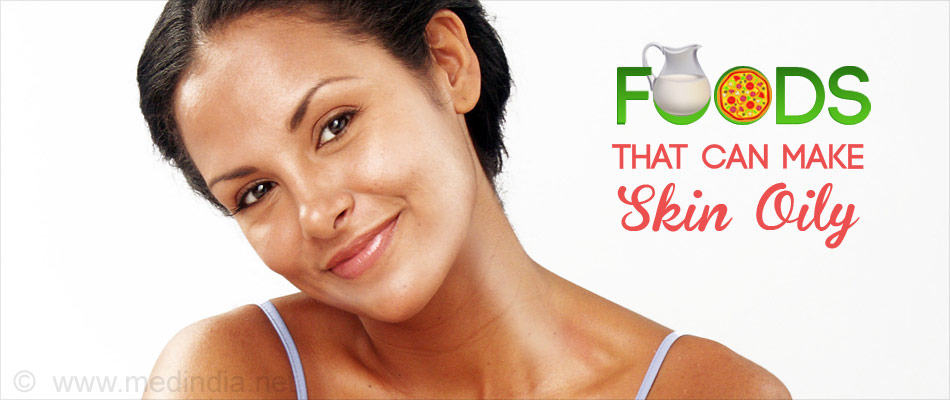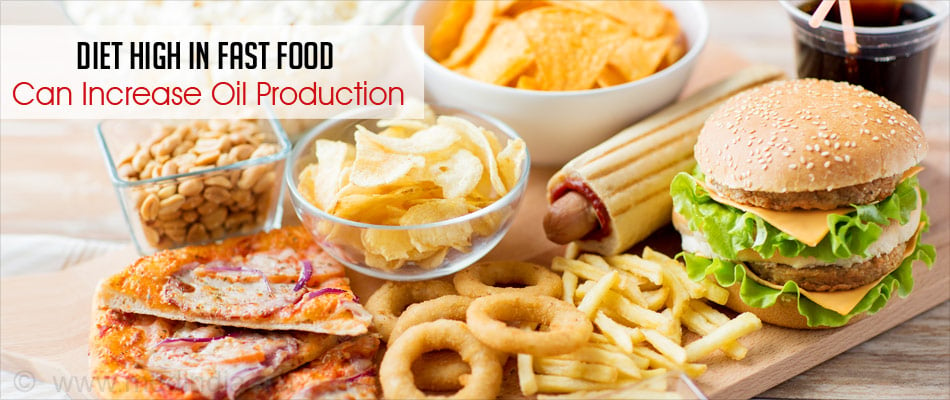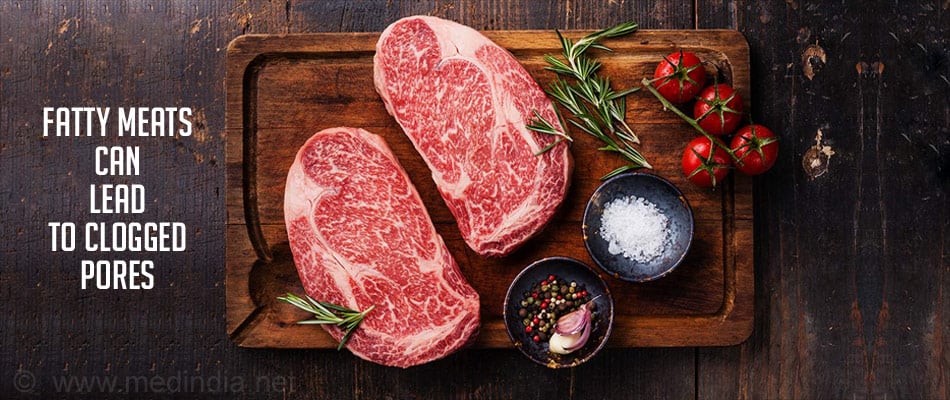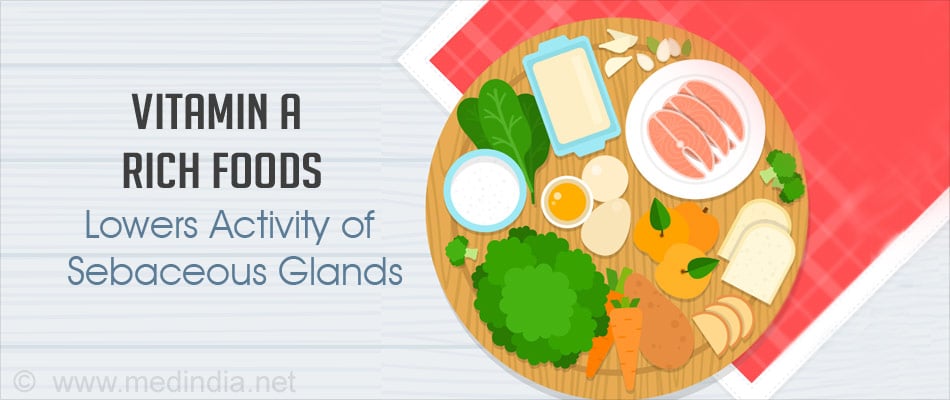Foods to Avoid for Oily Skin
Oily, normal, dry and sensitive are the different types of skin. Some have a combination of skin types and it varies as you get older. Oils produced by the body help keep skin healthy, but excess oil can lead to blemishes and acne flare-ups.
In oily skin, the oil-producing sebaceous glands are overactive thereby producing more oil than required which gives the skin a greasy texture.

People with oily skin are prone to enlarged pores, dull or shiny thick complexion, blackheads, whiteheads and pimples. Diet, heredity, humidity, birth control pills and cosmetic products are factors that contribute to oily skin. The hormonal changes during adolescence can result in oily skin in teenagers. The biggest advantage of having oily skin is that it reduces the incidence of wrinkles thereby slowing down the aging process.
Let’s get to know about the top foods that can make your skin oily:
Refined Carbohydrates
Refined carbohydrates like sugar, refined flour, white bread, bakery products, desserts are quickly digested and absorbed into the bloodstream, resulting in a spike in insulin levels. High insulin levels increase the level of androgens, which stimulates excessive sebum production, oily skin and acne. Excessive sugar consumption can stimulate an overgrowth of candida bacteria, which causes acne.
Fast Food
Fast food like pizza, fries, and burgers are high in fat and sodium. Most of the commercially available fast food contains trans-fats or hydrogenated fats which affect proper blood circulation thereby resulting in blocked pores, acne, bacteria build up and oily skin.

Dairy Products
Dairy products contain whey and casein proteins. Whey protein triggers spike in insulin levels. Additionally, whey proteins contain a growth factor betacellulin which binds to Epidermal Growth Factor Receptor (EGFR) that can trigger excessive sebum production. Casein increases the levels of insulin-like growth hormone-1 (IGF-1) and activates the androgen receptors, resulting in acne.
Omega-6 Fatty Acids
The ratio of omega-6 to omega-3 fatty acids in a Western diet typically ranges anywhere between 10:1–20:1 as compared to a non-western diet where the ratio is 3:1–2:1.
Omega-6 fats found in vegetable oils induce pro-inflammatory mediators which are linked with the development of inflammatory acne and excessive sebum production. On the other hand, Omega 3 fats found in walnuts, flaxseeds and oily fish like salmon, tuna decreases inflammation and acne production.
Red Meat
Red meat increases the level of male sex hormone testosterone in the body which increases sebum production and can lead to clogged pores and acne. Since it contains a significant amount of saturated fat, it can also lead to inflammation.

Tips
- Eat 4-5 servings of vegetables along with 2 servings of fruits since they are high in fiber which keeps the digestive system clean. They also contain antioxidants which possess anti-inflammatory properties.
- Drinking plenty of water will help regulate the skin’s oil production.
- Opt for a light, non-comedogenic moisturizer which will help stabilize the oiliness of the skin.
- Include Vitamin A rich foods like green leafy vegetables, papaya, mango, sweet potato and eggs in your diet since they help lower the activity of sebaceous (oil- producing) glands.









